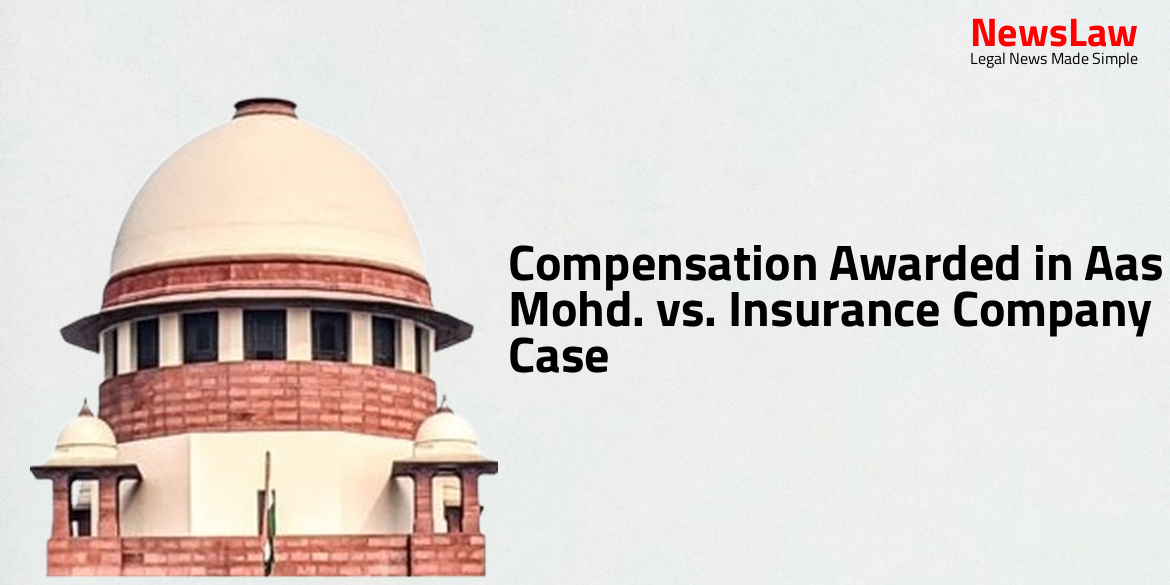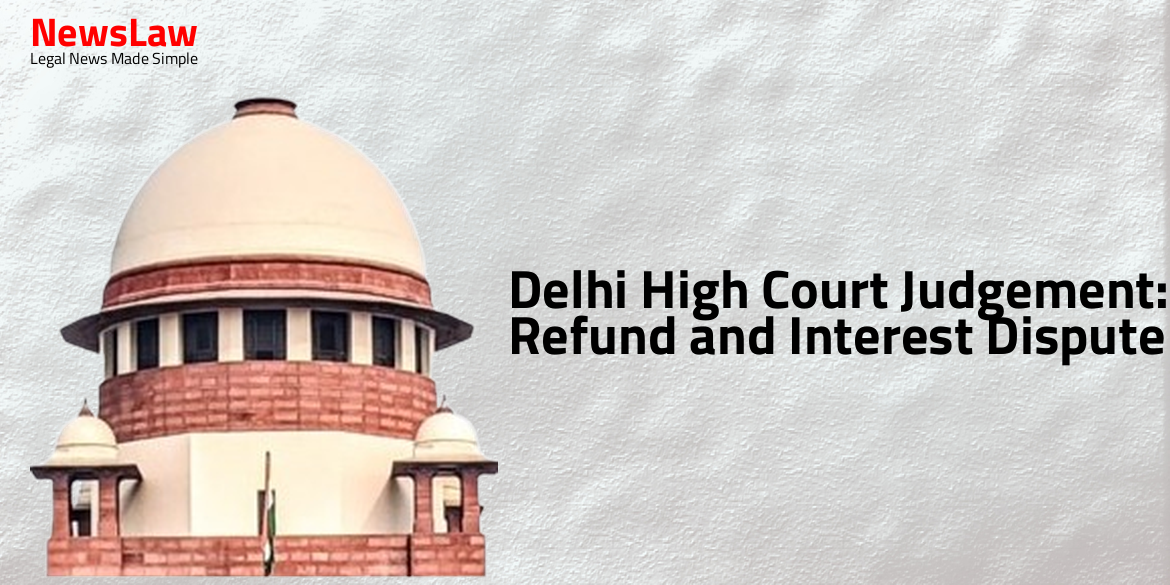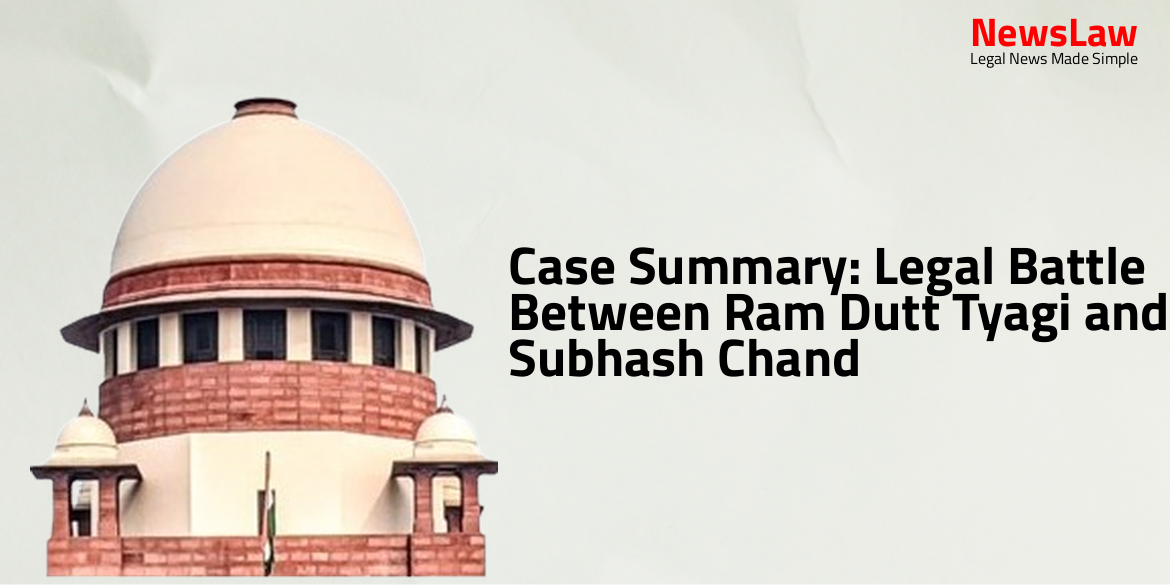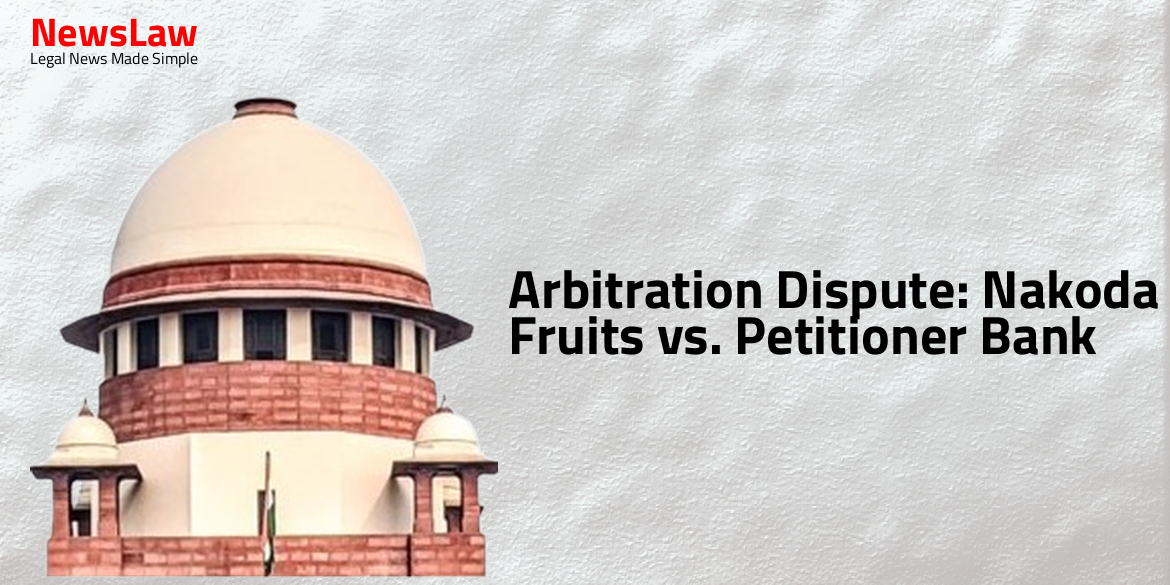In a significant ruling by the Delhi High Court, compensation has been awarded in the case involving Aas Mohd. and the Insurance Company. The judgement addresses the traumatic injuries suffered by Aas Mohd. and the subsequent legal battle for fair compensation. This decision establishes crucial precedent in cases of injuries and insurance claims. #DelhiHighCourt #LegalJudgement #CompensationCase
Facts
- Nature of injuries suffered by the claimant was traumatic and will be a big handicap in performing normal bodily functions throughout his life.
- Compensation for loss of earning capacity to be re-calculated at Rs. 1,95,000/- per month.
- Inadequate compensation awarded for mental, physical shock, pain, suffering, and loss of amenities.
- Claimant found to have 10% disability and bedridden for about a year.
- Enhancement of compensation for loss of income/earnings to Rs. 1,20,000/- per month.
- Claimant suffered multiple severe injuries including fractures at the age of 49 years.
- 25% addition in notional income considered for potential future prospects due to disabilities.
- The disability assessed at 10% of the whole body by the Learned Tribunal.
- The claim petition under Sections 166 and 140 of the M.V. Act by Aas Mohd. has been allowed, awarding a total compensation of Rs. 88,33,363/- due to permanent 85% disability from injuries in the accident.
- The insurer is attempting to avoid paying compensation based on evidence presented in the Motor Accident Claim Petition.
- Aas Mohd., aged 24 at the time of the accident, suffered 85% permanent disability in the right lower limb, supported by the Disability Certificate (Ex. CW-1/1).
- No compensation has been received by Aas Mohd. to date despite the established disability and injury sustained in the accident.
Arguments
- The Insurance Company’s misconduct and delaying tactics in leading evidence have caused gross injustice to the appellant.
- The misery of the appellant has worsened due to the untraceability of the driver and registered owner of the offending vehicle.
- Case references like Mangla Ram v. Oriental Insurance Co. Ltd., Oriental Insurance Co. Ltd. v. Jayeshbhai Bhagubhai Patel, National Insurance Co. Ltd. v. K. Saravanan, V. Ravi v. M/s New India Assurance Co. Ltd., Silli Man Subba v. Man Bahadur Subba, United India Insurance Co. Ltd. v. Guddy have been cited in support of the claimant’s arguments.
- Fraud vitiates everything and since the offending vehicle was not insured for third-party risks, no liability to pay compensation can be fastened upon the Insurance Company.
- In the earlier claim petition, the insurance company had taken a specific plea that the policy of insurance was being verified.
- Evidence was led on the aspect of insurance verification in the third claim petition which led to the judgment dated 21.11.2022.
Analysis
- The appellant/insurance company cannot be allowed to approbate and reprobate in the same breath.
- The claimant was earning a minimum of Rs. 10,000 per month.
- The claimant underwent multiple surgical procedures and treatments after the accident.
- The Insurance Company failed to prove that the policy of insurance was forged or fabricated.
- The claim petitions were instituted on the same day but concluded at different times due to the COVID-19 pandemic.
- Additional evidence was allowed to be presented by the appellant/insurance company regarding the validity of the insurance policy.
- The decision in MACP No. 136/2016 regarding the insurance responsibility constitutes issue estoppel in later cases.
- Serious objections were raised regarding the compensation amount for loss of earning capacity or functional disability.
- The validity of the policy of insurance was never disputed in the earlier claim petitions.
- The judgments in MACP Nos. 137/2016 and 135/2016 found the insurance company liable to compensate the claimants.
- The testimony of witnesses from the Insurance Company did not fully support the claim that the cover note was forged or fabricated.
- The compensation awarded towards future income/functional disability was re-assessed based on the claimant’s notional income.
- The judgment in MACP No. 136/2016 exonerating the Insurer from payment was found to be unsustainable.
- The issue of quantum of compensation for medical treatment and expenses was scrutinized and adjustments were made.
- The Insurance Company’s delay in verifying the cover note’s genuineness did not justify their contradictory stands in the case.
- The letter and complaint lodged by the Insurance Company regarding the fake cover note did not lead to concrete outcomes.
- The award of compensation for loss of income and functional disability was re-evaluated based on the claimant’s circumstances and notional income.
- The authenticity of the cover note was challenged based on discrepancies in spelling and stamp details.
- The findings and award amounts in the earlier cases were considered to apply to subsequent cases involving the same accident.
- The principle of issue-estoppel was cited to support decisions made in previous litigation related to the accident.
- The evidence presented by the Insurance Company’s witnesses did not conclusively prove the cover note’s forgery or fabrication.
- The compensation amounts for various heads were assessed and adjusted based on the claimant’s situation and evidence presented during the trial.
- In a case where a question of law is involved, the decision will be binding in subsequent proceedings between the same parties if the cause of action is the same.
- The term ‘the matter in issue’ in Section 11 of the Code of Civil Procedure refers to the right litigated between the parties, including the facts and the applicable law.
- The correctness of the earlier judgment is not a concern when applying the rule of res judicata.
- In a specific case where two claim petitions were involved with different liability determinations, the court held that the Insurance Company cannot selectively choose to be liable in one case but not in another involving the same parties.
- The court found that it is reasonable to assume that the patient would have required assistance and care while confined to bed.
- The judgement-cum-award dated 21.11.2022 in MACP No. 136/2016 regarding Aas Mohammad is not legally sustainable.
- The decision exonerating the insurance company from financial liability is set aside.
Decision
- The MAC APP No 1033/2018 filed by the insurance company is dismissed.
- Compensation amount to be deposited with the Tribunal within four weeks.
- Penal interest of 12% per annum applicable if compensation not deposited within the specified timeline.
- Compensation for nursing/attendant enhanced to Rs. 1,00,000 from Rs. 50,000.
- MAC APP No 306/2019 filed by the claimant-injured is allowed with an increase in compensation for future medical treatment to Rs. 1,00,000.
- Various heads of compensation detailed, with the total amount of Rs. 16,37,555 awarded.
- MAC APP No 304/2019 filed by the claimant-injured is allowed with the compensation of Rs. 16,37,555 payable with 9% interest per annum.
- Insurance company directed to pay the compensation amount of Rs. 88,33,363 to the appellant with 9% interest till realization.
- Enhancement of compensation for pain and suffering to Rs. 2,00,000 and loss of enjoyment of amenities of life to Rs. 2,00,000.
- Detailed breakdown of compensation amounts for various categories provided.
- MAC APP 379/2023 decided with directions for depositing the compensation with the Tribunal within four weeks.
- Penal interest of 12% per annum applicable if compensation not deposited within the specified timeline.
Case Title: FUTURE GENERALI INDIA INSURANCE COMPANY LTD Vs. SAFEEYA & ORS (2024:DHC:4014)
Case Number: MAC.APP.-1033/2018



